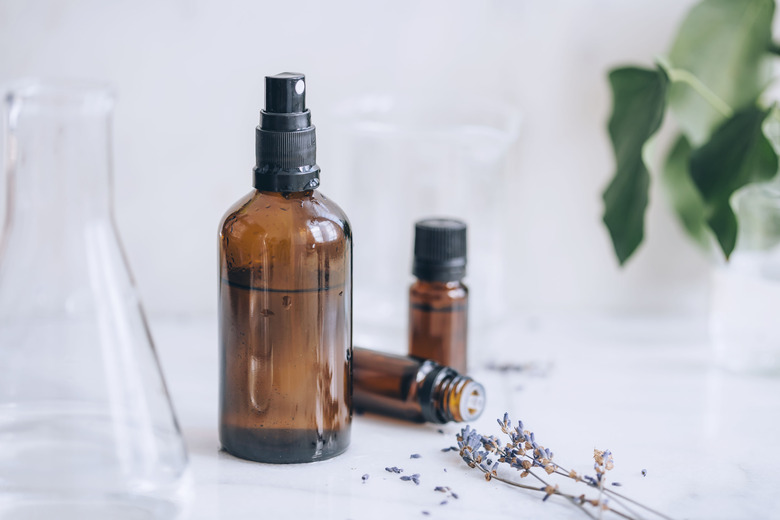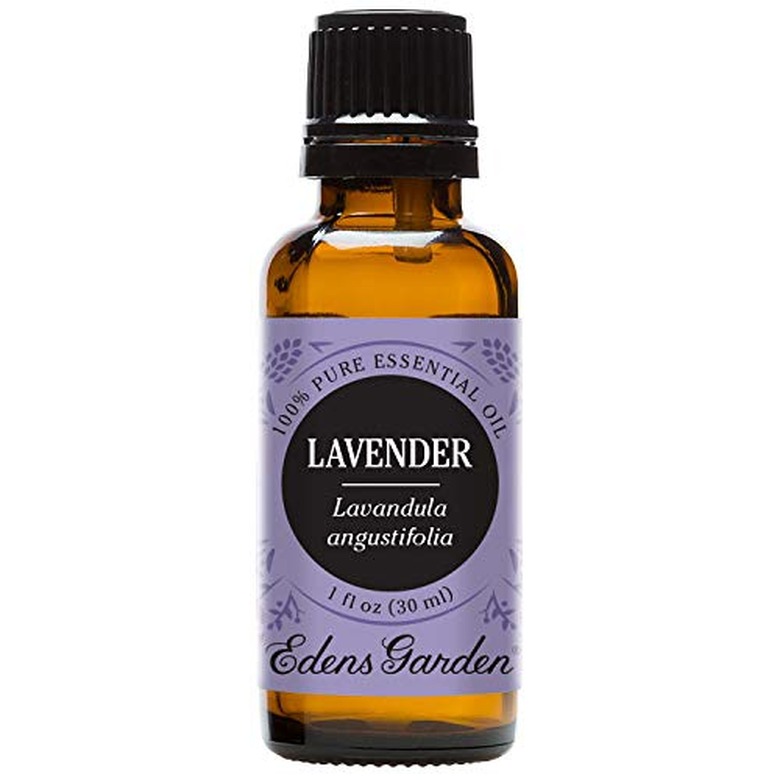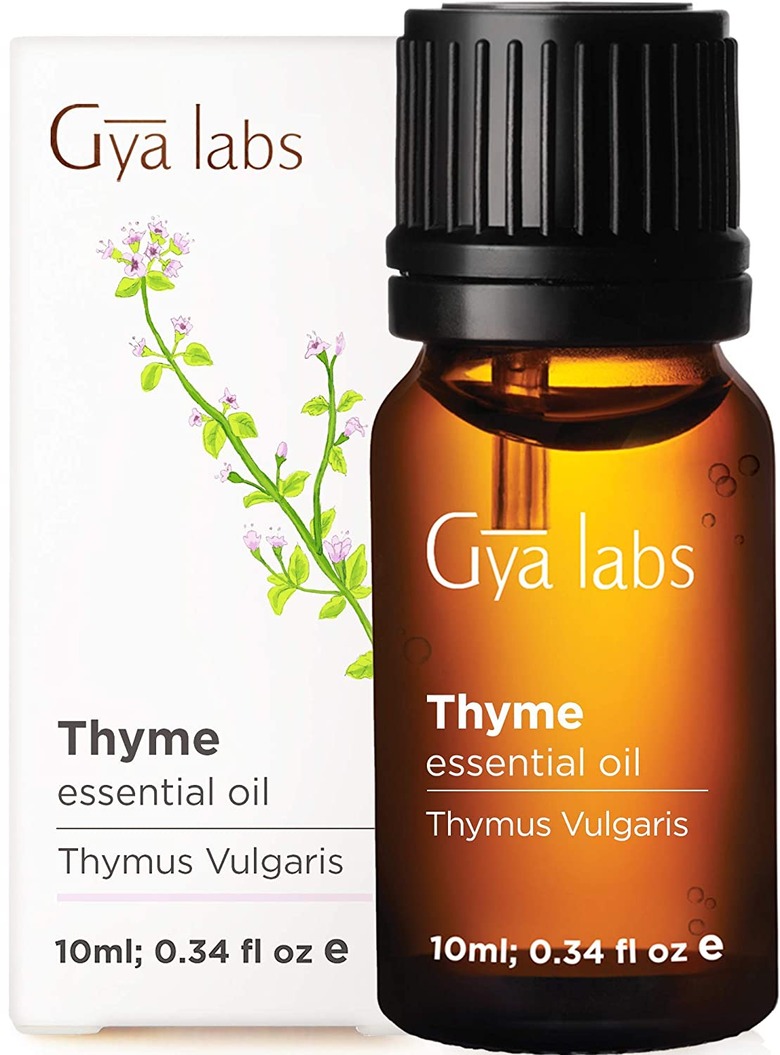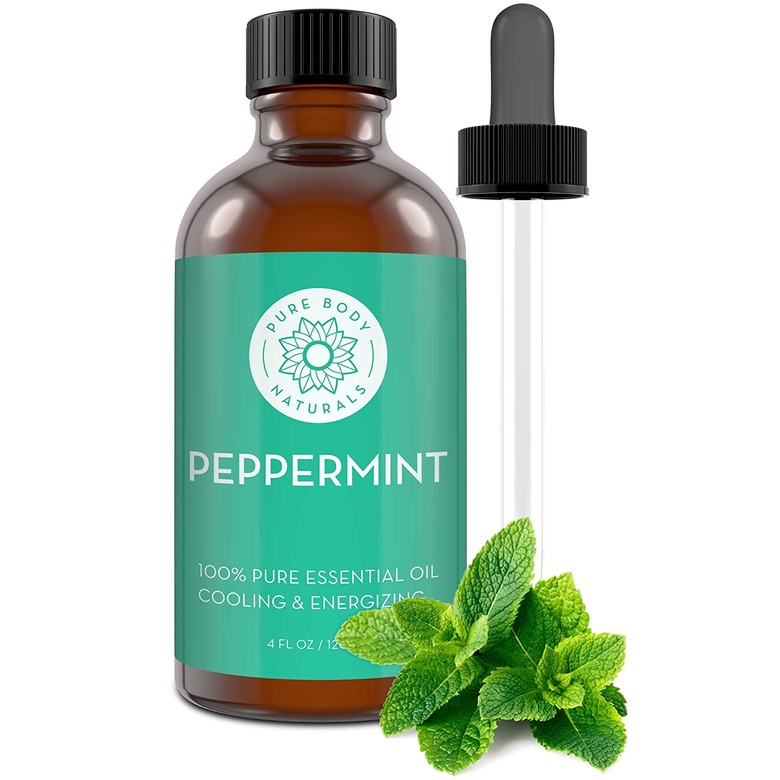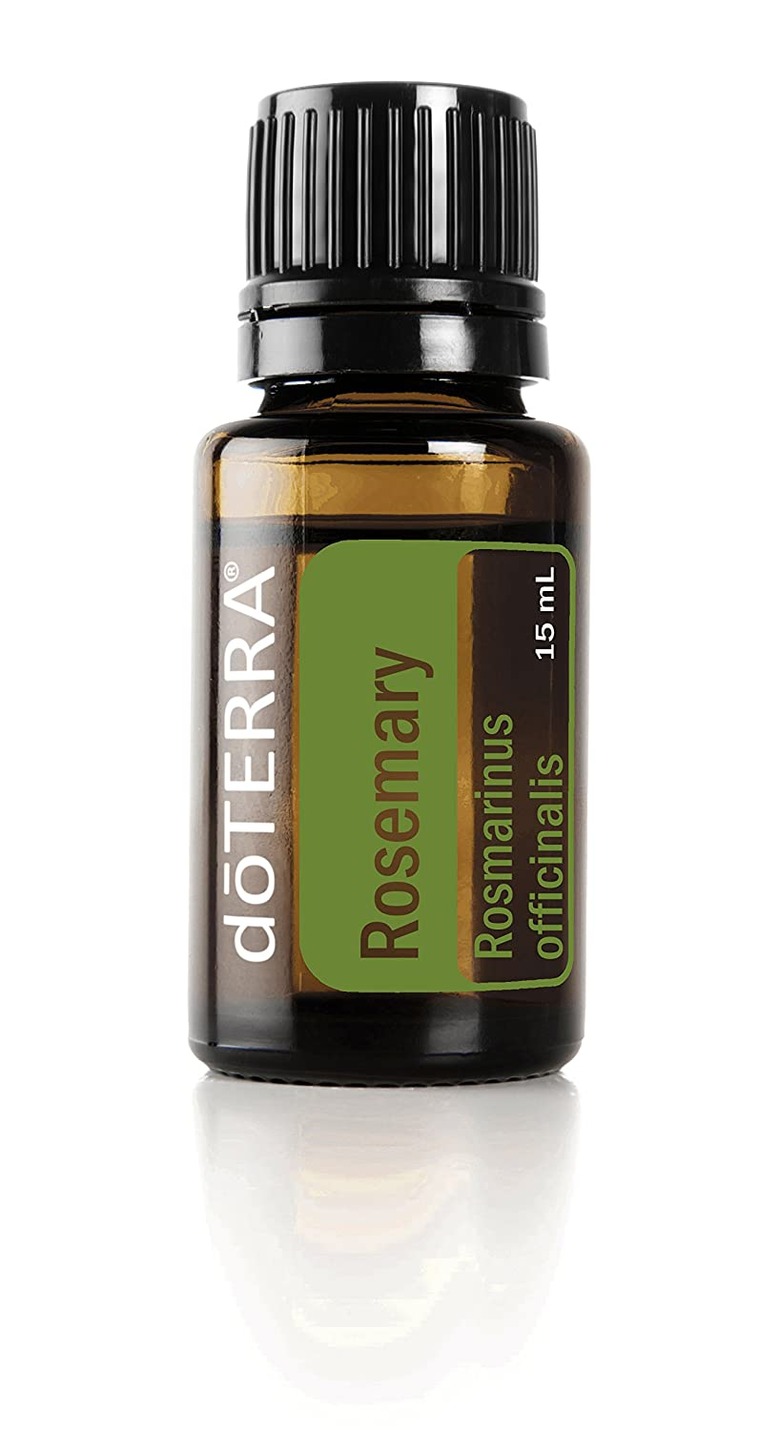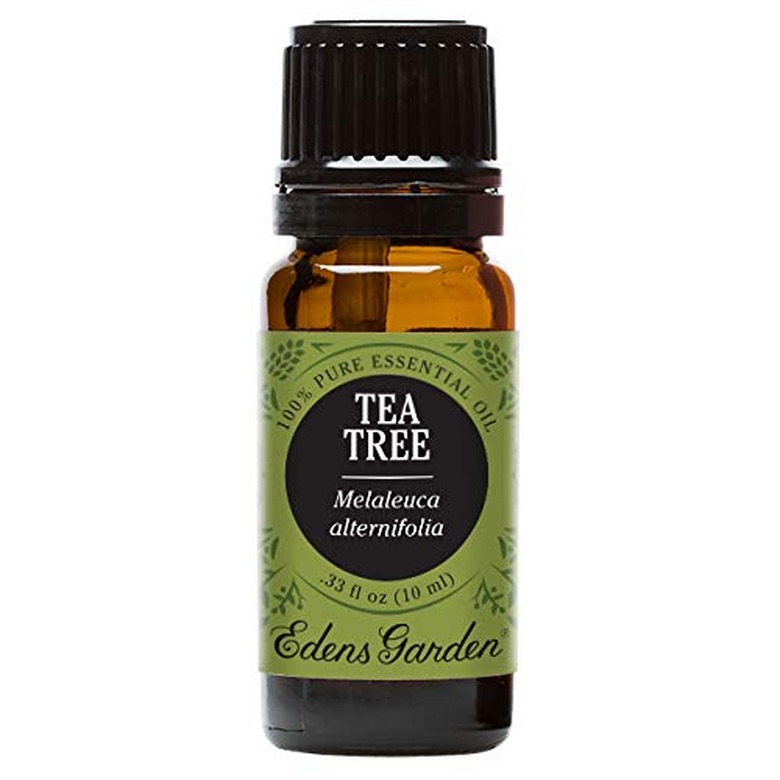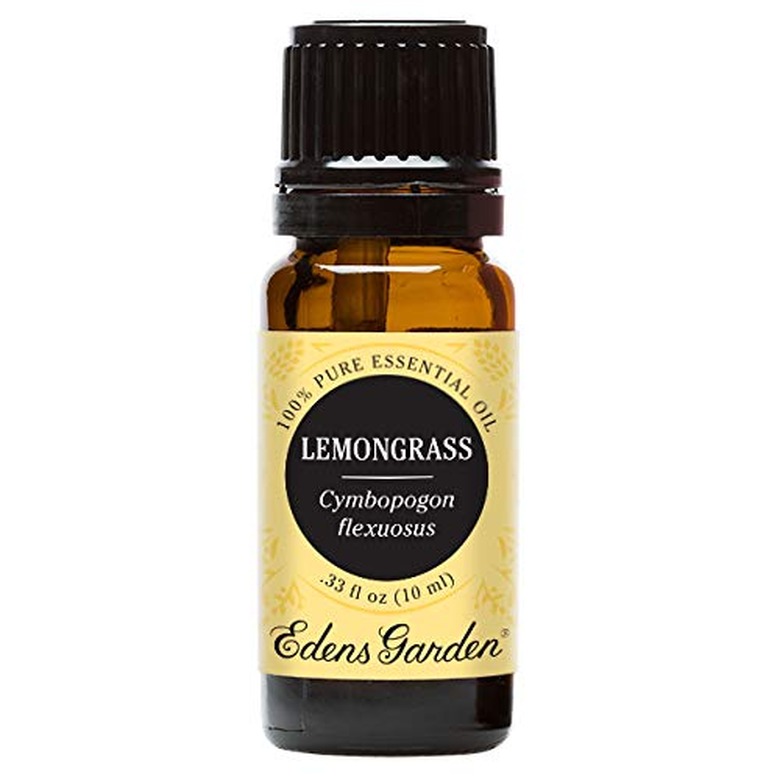Using Essential Oils For Cleaning Solutions
We may receive a commission on purchases made from links.
Our use of essential oils dates back to ancient times, initially for their scents — which are still their most popular uses today — and, later, for their medicinal properties. This made them valuable trade items because the plants that they were extracted from only existed in certain regions of the world. These days we don't have to travel far (or at all) to access a wide range of essential oils as we did centuries ago. Essential oils' many uses are contributing to their rising popularity specifically in the United States, where people are increasingly turning to natural products for health, beauty, and wellness.
Essential oils can positively stimulate our senses in numerous ways (hello, aromatherapy), and certain oils have antimicrobial properties. Yes, that oil you may have on your dresser to freshen the air or yourself, when diffused or diluted properly — remember that essential oils are concentrated and should be handled with care — can also fight certain viruses and bacteria on surfaces. While experts always suggest washing surfaces with hot water and soap as part of your cleaning regimen (especially where you prepare food), here are some essential oils with antimicrobial properties that you may also find useful in your home.
Quick tip: Glass spray bottles and containers are generally recommended when making sprays and cleaners with essentials oils.
Lavender Essential Oil
Lavender Essential Oil
There's a reason lavender is used in many commercial cleaning products. Not just a pleasant scent, lavender has "tremendous antibacterial and deodorizing properties," according to an American College of Healthcare Sciences blog post. They suggest lavender essential oil for green cleaning, including on carpets and rugs: "Add eight drops of lavender oil to ½-cup baking soda. Sprinkle over the carpet, wait a few minutes, and then vacuum."
For surfaces, they suggest a DIY lavender and bergamot cleaner spray: three drops of lavender oil, two drops of bergamot oil, and two cups of white vinegar. Shake well before each use.
Thyme Essential Oil
Thyme Essential Oil
The active ingredient in Seventh Generation's disinfecting products is thymol, which is derived from thyme botanical oil, long known for its antibacterial and antifungal activities, including suppressing mold and killing E. coli. You'll also find thymol in mouthwash.
The Essential 3 Blog features this Simple 3-Ingredient Disinfectant Spray with thyme essential oil as its main ingredient: two cups of hot water, 10 drops of Thyme Sweet essential oil, and ¼ cup of washing soda. To use, they write, "Swirl gently to combine, then spray and wipe (with a dry or damp rag) in the kitchen, bathroom, and anywhere else you'd normally use a disinfectant spray. "
Peppermint Oil
Peppermint Oil
Many mothers and caregivers may already know that diluted peppermint essential oil can be effective in eliminating lice (and repelling mice). Isn't it nice to fill your living spaces with the scent of something uplifting while ridding your home of undesirable visitors? Peppermint essential oil can do the same for your surfaces as well.
Backdoor Survival has this simple recipe for peppermint spray: "In a spray bottle, mix 10 drops of peppermint essential oil with a cup of water. Use this spray to wipe down hard surfaces in your home."
Rosemary Essential Oil
Rosemary Essential Oil
Just thinking of rosemary instantly conjures the sight and smell of irresistible dishes, but many are not aware of the herb's many beneficial properties beyond those rosemary potatoes you love for brunch. In a 2018 Medicines article, researchers state, "Several studies have reported that rosemary extracts show biological bioactivities such as hepatoprotective, antifungal, insecticide, antioxidant and antibacterial."
Karyn Siegel-Maier, author of The Naturally Clean Home: 150 Super-Easy Herbal Formulas for Green Cleaning, has many recipes featuring rosemary essential oil for these very reasons. We look forward to trying her Rosemary-Geranium Floor Wipes recipe that uses just four ingredients: one cup of water, one cup of white vinegar, 10 drops of rosemary essential oil, and 10 drops of geranium essential oil. She touts that "these fragrant wipes will almost make cleaning the floor a pleasure." One hopes!
Tea Tree Oil
Tea Tree Oil
Derived from the leaves of Australia's tea tree, tea tree essential oil has a strong odor that is an instant pick-me-up, which is why many of us have enjoyed using tea tree products to kick off our days, in the bath, for instance, as well as for its antibacterial and antifungal properties. Oh, yes, there's also that wonderful tingle tea tree products bring to the skin. Because it's a great antiseptic, you'll find tea tree essential oil in many natural home cleaning solutions.
In the book Clean House, Clean Planet, author and environmentalist Karen Logan has a entertainingly named Crocodile Clean™ Disinfectant Alternative recipe worth trying: adding 50 drops (or one dropperful) of tea tree oil to a gallon of vinegar. "Use this disinfectant alternative rinse anywhere, on floors, walls, pails, tubs," she writes, mentioning you can use the mix directly from the jug of vinegar or placing in a 16 ounce squirt bottle. (Glass is always preferred.)"
Lemongrass Essential Oil
Lemongrass Essential Oil
The desirable activities of lemongrass essential oil have been confirmed in many studies, from improving dental health and lowering cholesterol to disinfecting the air and surfaces. In a 2008 study that compared surface cleansers containing citric acid and essential oils, it found that "the cleanser containing lemongrass oil plus orange oil showed the highest efficacy ... as compared to cinnamon oil plus orange oil or pine oil plus orange oil disinfectant cleansers." Check out our recipe for a DIY Lemongrass All-Natural Spray Cleaner that includes vinegar, limes, lemongrass stalks, and both lemongrass and lime essential oils to clean and freshen your home.
